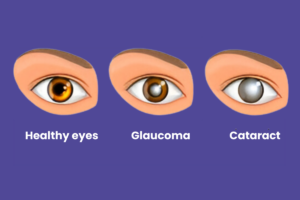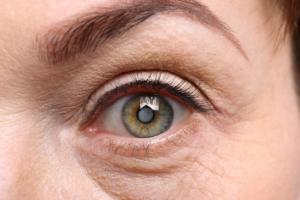Best Cataract surgery in Ahmedabad
What is cataract surgery?
A cataract is a condition in which the eye’s natural lens becomes cloudy. Cataract surgery involves removing this cloudy lens and replacing it with an artificial plastic lens. An ophthalmologist, or eye surgeon, performs this procedure.
Surgery is essential because cataracts can lead to blurry vision and other visual disturbances.
Also referred to as lens replacement surgery, this procedure is generally painless and often restores clear vision.
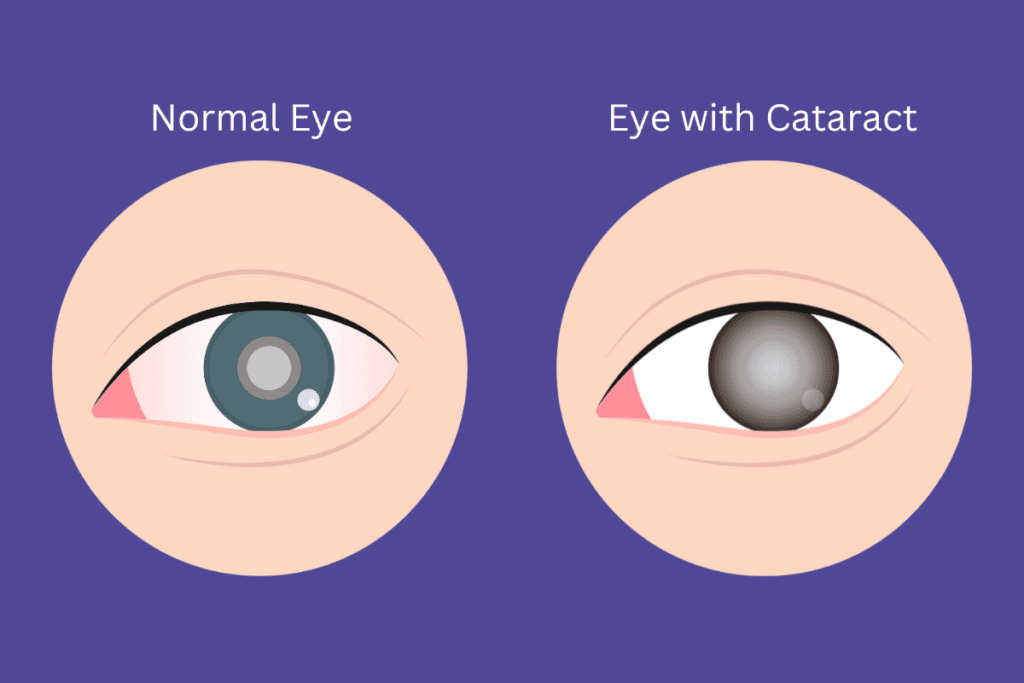
Symptoms of Cataract
Cataracts typically don’t cause pain. However, if your vision isn’t as sharp as before—whether for distant or close-up objects—it might be time to consult a doctor. Other signs to watch for include:
- Difficulty seeing in low light conditions.
- Increased sensitivity to bright lights.
- Noticing a “halo” effect around lights, like street lights or headlights.
- Experiencing double vision or ghosted images.
- Colors may appear duller or less vibrant than they once did.
- Frequent change in glass.
- Clarity in near vision without glass.
Causes of cataract
Cataracts primarily develop as a part of the natural aging process. Over time, the lens tissue in our eyes accumulates proteins and becomes less clear, which leads to a gradual decline in vision. If a person lives long enough, they will likely develop cataracts.
However, cataracts can also be caused by several other factors, particularly in younger individuals. These include:
- Health issues: Conditions such as diabetes can accelerate the formation of cataracts by affecting the lens of the eye.
- Previous eye injuries or surgeries: Trauma to the eye or past eye surgeries can lead to cataract development.
- Medications: Long-term use of certain medications, such as steroids, can increase the risk of cataracts.
- Inflammatory conditions: Eye inflammations like uveitis can contribute to cataract formation.
- Myopia: Severe nearsightedness (myopia) can also be associated with an increased risk of cataracts.
- Family history: A genetic predisposition can lead to the early onset of cataracts in some individuals, making family history an important factor.
- Other factors: Lifestyle factors such as prolonged exposure to ultraviolet (UV) light, smoking, and alcohol use may also contribute to cataract development at a younger age.
Understanding these causes can help in early detection and management of cataracts, regardless of age.
Why is cataract surgery needed?
Your vision is blurry or impaired, making everyday tasks or driving challenging.
- You struggle to see clearly in low-light conditions.
- Even with glasses, your vision remains unclear.
- Colors appear dull or washed out.
- You experience increased sensitivity to glare and bright lights.
What is phacoemulsification?
Phacoemulsification is the most common technique, where ultrasonic waves are precisely directed to break the cloudy lens (cataract) into smaller fragments.
These ultrasound waves are delivered to the eye via a specialized handpiece that fits into a self-sealing incision, which is less than 2.5 millimeters wide. The ophthalmologist then gently removes the fragmented lens using a soft vacuum.
After the lens is removed, the ophthalmologist inserts an artificial intraocular lens (IOL) into the eye. This IOL is placed in the same support structure where the natural lens was once positioned at the front of the eye.
Intraocular lens options
Each lens type comes with its own set of benefits and drawbacks.

Monofocal lenses
Monofocal lenses are the most frequently used type following cataract surgery. They provide a single point of focus, typically optimized for distance vision. As a result, patients usually need to wear glasses for reading or other close-up tasks.
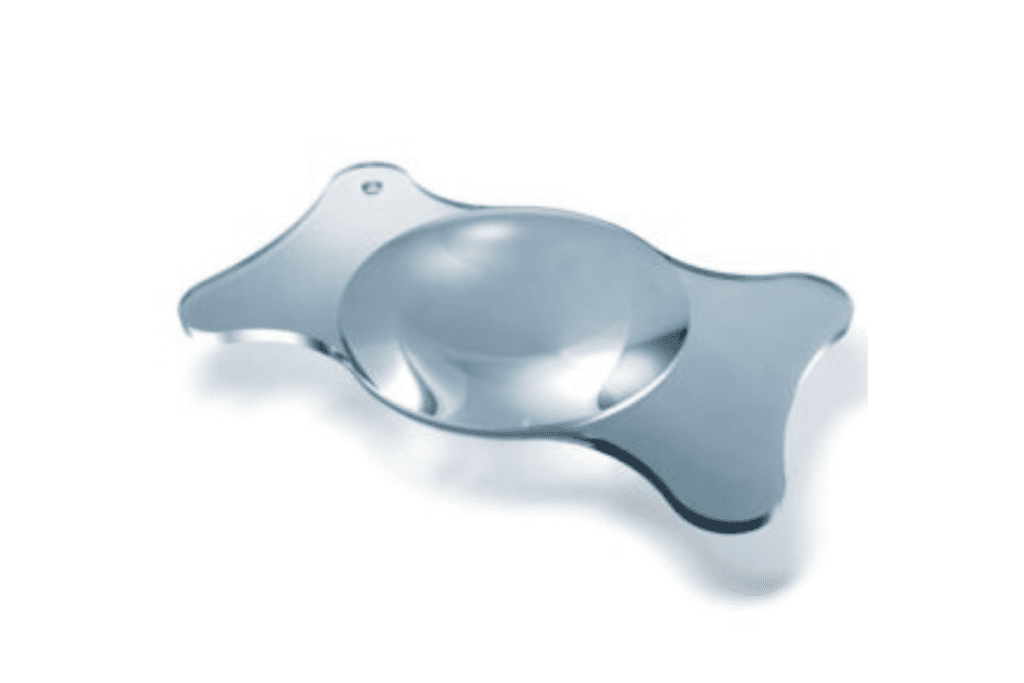
Toric lenses
Toric lenses are designed to correct astigmatism, improving clarity for patients who had astigmatism prior to surgery.

Extended Depth-of-Focus (EDoF) lenses
EDoF lenses are crafted to offer clear vision at both distance and intermediate ranges, making them ideal for tasks like using a computer, watching television, or reading a car dashboard.
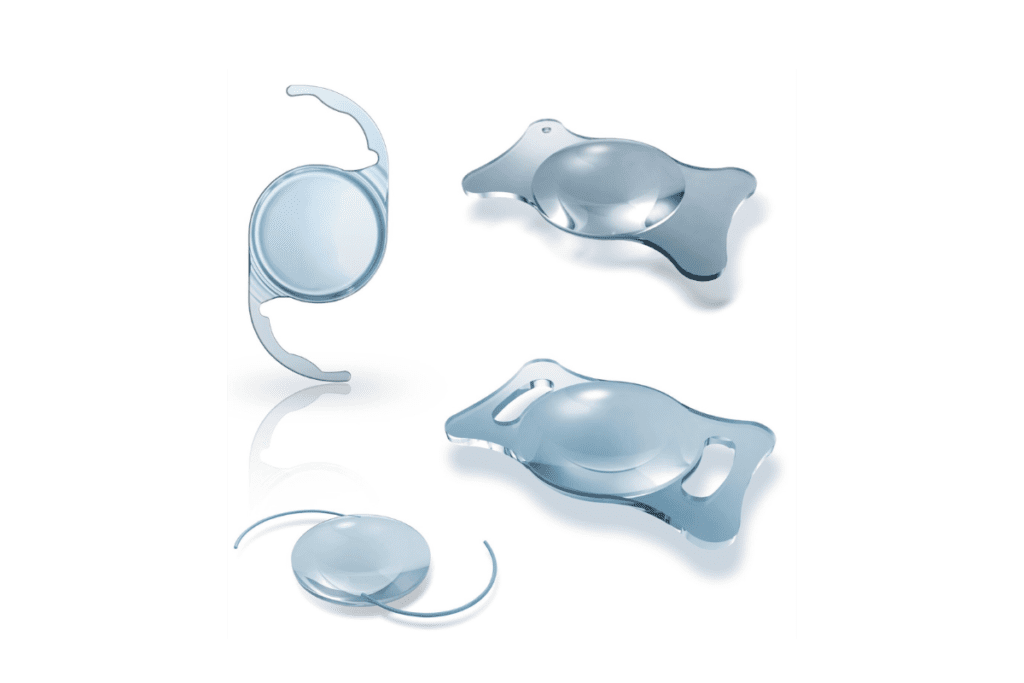
Multifocal lenses
Multifocal lenses are designed to split light, enabling focus at multiple distances—near, intermediate, and far. However, this design may lead to a slight compromise in visual quality and contrast.
How to prepare for cataract surgery?
Before your cataract surgery, your ophthalmologist will conduct a thorough eye examination, measure the shape and size of your eye, and discuss the different types of intraocular lenses (IOLs) available. They will also go over any medical history and ensure you’re in good health for the procedure.
During cataract surgery, the ophthalmologist will make a tiny incision in your eye to access the clouded lens. Using ultrasonic waves, they will break the lens into small fragments, which are then gently removed. An artificial intraocular lens (IOL) is then inserted into the eye to replace the natural lens.
Cataract surgery is usually a quick procedure, taking about 15 to 30 minutes. Including preparation and recovery time, you can expect to spend a few hours at the surgical center.
After cataract surgery, you may experience some mild discomfort and blurred vision as your eye heals. Your ophthalmologist will provide specific instructions for care, and you’ll need to use eye drops to prevent infection and inflammation. A follow-up visit will be scheduled to monitor your recovery and ensure the new lens is functioning properly.
Recovery period
Most people will begin to see improvements in their vision within a week after surgery, though full healing usually takes around four weeks.
The first few days following the procedure are vital for a quick recovery. It’s important to adhere to all instructions from your ophthalmologist, which include:
- Using prescribed eye drops as directed.
- Wearing the protective plastic shield as recommended.
- Attending all follow-up appointments.
Here are things you should avoid during the initial recovery period after cataract surgery:
- Do not rub your eyes.
- Avoid getting water or soap in your eye.
- Refrain from engaging in strenuous activities.
- Steer clear of using eye makeup for at least a week.
- Do not drive or fly until your surgeon approves.
Complications of cataract surgery
Cataract surgery is generally very safe, but like any medical procedure, it carries some risks.
- Blurred vision after cataract surgery: It’s common for vision to be blurry for a few days to several weeks after cataract surgery, though it may take longer for some. Most patients will update their eyeglasses about six weeks after the procedure.
- Cloudiness in the eye after cataract surgery (“after-cataract”): Some patients may experience a decline in vision quality months or years after cataract surgery, often feeling as though their cataract has returned. While cataracts cannot recur, a layer of scar tissue can develop behind the artificial lens, a condition known as Posterior Capsule Opacification (PCO) or “after-cataract”. PCO can be effectively treated with a simple, office-based procedure called a YAG laser posterior capsulotomy.
- Floaters after cataract surgery: Floaters, which appear as tiny specks or shapes drifting in your vision, are usually harmless and don’t require treatment. However, if floaters are accompanied by flashes of light, it could indicate a retinal problem that needs immediate attention.
- Eye pain after cataract surgery: Severe eye pain after cataract surgery could indicate an infection or other complications, such as increased eye pressure. If you experience significant pain, you should contact your surgeon right away.
- Infection: Infection within the eye (endophthalmitis) is a rare but serious complication of cataract surgery, occurring in about 1 in 2,000 cases. It requires urgent treatment with antibiotics, and in some cases, additional surgery. Unfortunately, some patients may lose their vision if endophthalmitis occurs.
- Anesthesia allergy: While rare, allergic reactions to anesthesia can occur. These reactions are usually mild and tend to resolve quickly.
- Watery eyes: Some patients may experience excessive tearing or watery eyes after cataract surgery, often due to temporary irritation or dryness. This can also occur as a result of inflammation in the lacrimal gland, which produces tears, leading to temporary changes in tear production, including dry or watery eyes. In rare cases, nerve injury at the incision site may affect eyelid movement or sensation, contributing to these symptoms. These conditions are usually temporary but should be monitored to ensure proper healing.
- Dry eyes: Dry eyes can also occur after surgery, as the procedure may affect the natural tear production. This condition usually improves with time but may require lubricating eye drops for relief.
- Nerve injury: In rare cases, there may be a nerve injury at the incision site, potentially affecting the eyelid’s movement or sensation. This is usually temporary but should be monitored.
- Dysphotopsia: This condition involves visual disturbances such as glare, halos, or light streaks around lights, particularly at night. While not common, dysphotopsia can be bothersome but often diminishes over time.
- Inflammation-related issues: Inflammation of the lacrimal gland, which produces tears, can result in temporary dry or watery eyes.
Aftercare
Cataract surgery aftercare: Dos and Don’ts
- Avoid driving: Do not drive on the day of your surgery.
- Rest at home: It’s best to rest at home for the first few nights after the procedure.
- Use an eye shield: To prevent pressure on your eye, wear a plastic eye shield while sleeping for the first week after surgery.
- Protect your eye: For the first two to three weeks, keep water and other contaminants away from your eye. You can bathe from the neck down during this period.
- Follow medication instructions: Apply the prescribed eye drops as directed by your ophthalmologist.
- Limit physical activity: Refrain from lifting heavy weights or bending over excessively during your recovery.
- Avoid touching your eye: Do not rub or touch your eye to prevent irritation and infection.
- Restrictions on food: There are some restrictions on food following cataract surgery. It is advisable to limit high-sugar foods, processed foods, caffeinated beverages, etc., to promote better healing. For more detailed information, check out our blog on “foods not to eat after cataract surgery”.
When to see a doctor immediately after cataract surgery?
While cataract surgery is generally safe and complications are rare, it’s important to know when to seek immediate medical attention. You should contact your doctor or visit the hospital right away if you experience any of the following symptoms:
- Severe pain: Some discomfort is normal after surgery, but if you experience intense or worsening pain, this could indicate a problem.
- Photophobia (Extreme sensitivity to light): If your eyes become overly sensitive to light beyond the initial recovery period, it could be a sign of inflammation or other complications.
- Persistent redness: Mild redness is common after surgery, but if your eye remains red or becomes more red over time, it could be a sign of infection.
- Unusual discharge: A small amount of watery discharge is normal, but thick, yellow, or green discharge could indicate an infection.
- Sudden vision loss or significant changes: If you notice any sudden loss of vision, double vision, or flashes of light, you should see a doctor immediately.
- Swelling around the eye: Swelling that does not subside or worsens could be a sign of inflammation or infection.
If you notice any of these symptoms, it is crucial to contact us as soon as possible to ensure prompt treatment and prevent further complications.
Why choose Krisha Eye hospital in Ahmedabad for cataract surgery?
At Krisha Eye hospital in Ahmedabad, we pride ourselves on offering comprehensive eye care with a personal touch. Here’s why we are the preferred choice for cataract surgery in Ahmedabad:
- Experienced surgeons: Our team of ophthalmologists has extensive experience in performing cataract surgeries, ensuring safe and successful outcomes for our patients.
- Advanced technology: We utilize the latest technology, including laser-assisted cataract surgery, to provide precise and effective treatment.
- Customized care: We understand that each patient is unique. We take the time to understand your specific needs and tailor our approach to ensure the best possible results.
- Compassionate staff: Our dedicated and compassionate staff are here to support you every step of the way, from your initial consultation to post-operative care.
- Comprehensive follow-up: We provide thorough follow-up care to monitor your healing process and address any concerns you may have, ensuring a smooth and comfortable recovery.
- Patient education: We believe in empowering our patients with knowledge. We take the time to explain the procedure, options, and aftercare, so you feel confident and informed.
- Cashless & Reimbursement options: We offer cashless treatment options through various insurance providers, making the financial aspect of your surgery more convenient. Additionally, we assist with the reimbursement process to ensure you receive the maximum benefits from your insurance plan.
Announcements or Updates
Special charges: We have a special registration charge of ₹50 for our Friday evening OPD for patients aged above 50. You can easily book your appointment in advance to avoid any inconvenience.
Meet the best cataract doctor in Ahmedabad
Dr. Dhwani Maheshwari
DOMS, DNB Ophthalmology
Experience:
- Extensive training in advanced ophthalmology techniques.
- Specialized in phacoemulsification and cataract surgery.
Education:
- MBBS from Smt. NHL MMC.
- DOMS from M and J Institute of Ophthalmology.
- DNB Ophthalmology from Mahatme Eye Bank Eye Hospital, Nagpur.
- Phaco Fellowship from Porecha Blindness Trust Hospital, Bareja.

What our patients say about their
cataract journey
Shankar Padmanabhan
Bhavin Panchani
Nilesh Parwani
Amit Gajjar
Dipesh Suthar
Mukesh Thakor
Pallav Vora
Nilesh Prajapati
Thakor Bhavesh
Girish Joshi
Ankit Patel
Devansh Thakor
Pravin Shah
Ratan Rajpurohit
Author bio
Dr. Dhwani Maheshwari, an esteemed ophthalmologist with over 8 years of experience, leads Krisha Eye Hospital in Ahmedabad with a commitment to advanced, patient-centered eye care. Specializing in cataract and refractive surgery, Dr. Maheshwari has performed more than a thousand successful surgeries. Her expertise lies in phacoemulsification, a technique recognized for its precision in cataract treatment.
Dr. Maheshwari’s educational journey includes an MBBS from Smt. NHL MMC, a DOMS from M & J Institute of Ophthalmology, and a DNB in Ophthalmology from Mahatme Eye Bank Eye Hospital, Nagpur. She also completed a fellowship in phacoemulsification at Porecha Blindness Trust Hospital, further enhancing her surgical skills. In addition to her work at Krisha Eye Hospital, Dr. Maheshwari serves as a consultant ophthalmologist at Northstar Diagnostic Centre.
Under her leadership, Krisha Eye Hospital aims to bring all superspecialties under one roof, offering comprehensive eye care solutions for all vision needs.
FAQs related to Cataract Surgery
You can book an appointment by contacting our hospital directly through phone number, or by using the online appointment system.
During your first visit, you will undergo a comprehensive eye examination to assess the severity of your cataracts and determine the best surgical approach for you. Our ophthalmologist will discuss your medical history, perform diagnostic tests, and explain the details of the surgery, including the types of intraocular lenses (IOLs) available.
We follow strict safety protocols to ensure patient safety and successful outcomes. This includes thorough pre-surgical assessments, state-of-the-art sterilization procedures, and the use of advanced surgical technology. Our experienced team is committed to adhering to the highest standards of patient care and safety.
Cataract surgery at Krisha Eye hospital is an outpatient procedure, meaning you can go home the same day. However, we recommend arranging for someone to drive you home after the surgery, as you will not be able to drive yourself.
Krisha Eye Hospital provides thorough post-operative care to ensure a smooth recovery. This includes detailed aftercare instructions, prescribed eye drops to prevent infection and reduce inflammation, and follow-up appointments to monitor your healing process. Our team is always available to answer any questions and address concerns during your recovery.
We provide comprehensive follow-up services, including regular check-ups to monitor your recovery and ensure optimal results. Our ophthalmologists will also provide guidance on any additional care you may need, such as adjustments to your eyewear or further treatments.
At Krisha Eye hospital, we consistently achieve excellent outcomes for our patients, with many experiencing significant improvements in their vision following the procedure. Our use of advanced techniques and the expertise of our experienced surgeons contribute to these successful results.For detailed success rates related to cataract surgery, please consult with our team.
The cost of cataract surgery can vary based on several factors, including the type of procedure, the type of intraocular lens (IOL) used, and any additional services or follow-up care required. At Krisha Eye hospital, we offer a range of options to fit different needs and budgets. We recommend contacting or visit our hospital to get a detailed estimate based on your specific case and financing options available.



